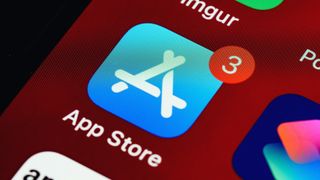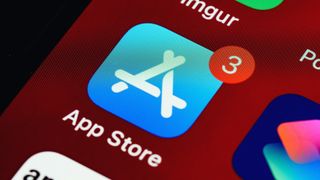Right now, everyone’s attention is focused on iOS 18 and all the artificial intelligence (AI) updates it’s rumored to be bringing. But amid all that attention, Apple has quietly brought an equally momentous change to iOS 17 – and you might be able to take advantage of it right now.
That’s because Apple is set to allow users in the European Union (EU) to start downloading apps from external websites in iOS 17.5. It’s the latest development in the long, tortuous sideloading road Apple has been heading down in recent months, and it could radically shake up how you add apps to your iPhone if you live in the EU.
That capability has made an appearance in the first developer beta of iOS 17.5, which is available right now (there’s no word on when iOS 17.5 will go live for everyone else). Previously, Apple had announced that it would let developers offer apps in alternative app stores, and that functionality made an appearance in iOS 17.4. Now, though, Apple has relaxed its app rules even further, and – if you’re located in the EU – is letting you get apps from developer websites, not just from external app stores.
That could potentially give users a lot more choice in how they obtain their apps, and it moves iOS a lot closer to macOS, where people have been able to download and install apps from websites for years. That said, the changes are not yet coming to the iPad, meaning EU users can only download apps from third-party websites on their iPhones.
Playing by the rules

Despite the relaxation of its app policies, Apple isn’t about to open the floodgates to any and every shady app that could cause harm to iOS devices. In order to be able to offer apps from their own websites in the EU, developers must meet a set of stringent criteria set out by Apple.
That includes being a member of the Apple Developer Program for at least two continuous years, and having an app with at least one million first installs on iOS in the EU in the previous year. The apps must also be submitted to Apple’s notarization process (which checks for malicious elements) and the developer must publish clear, transparent data collection policies for users to see.
If developers meet those criteria, Apple will provide them with an API that allows users to download apps from their websites. Those apps can then be backed up, updated and restored, just like those obtained from the official App Store.
The idea is that these policies will make it difficult for dangerous apps and nefarious developers to wreak havoc on iOS. Apple has long opposed opening up its app ecosystem on the basis that it could result in a deluge of malware and scam apps flooding users’ devices. With these strict policies, the company is no doubt hoping to avoid that outcome while still complying with the EU’s rules on opening up its famous walled garden.
How successful this move will be is anyone’s guess, but with the EU breathing down its neck, it’s clear that Apple’s hand has been forced. Whatever the outcome, iOS will likely never be the same again.
Services Marketplace – Listings, Bookings & Reviews
